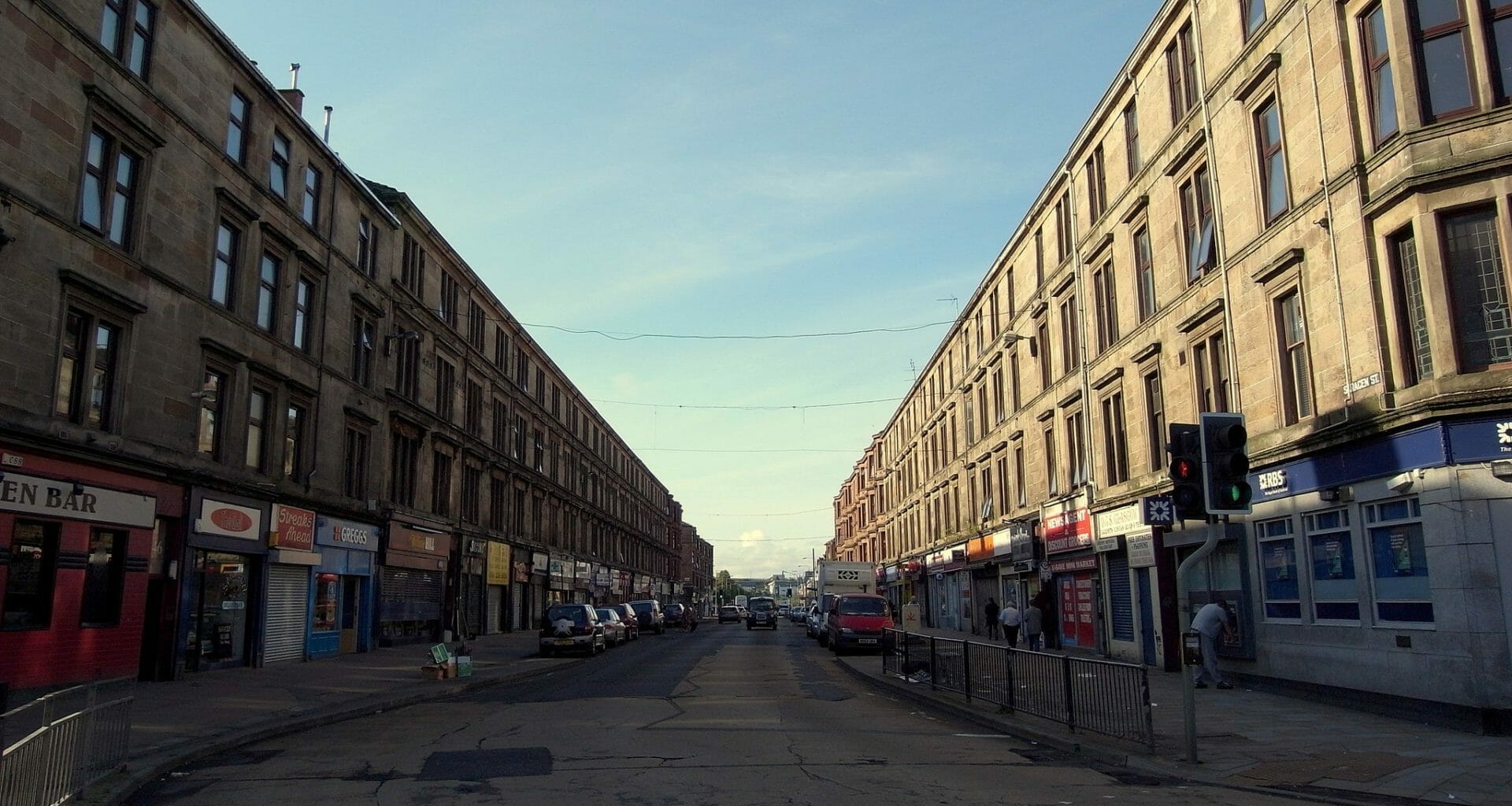
When the Prime Minister reportedly called Scottish devolution “a disaster” on a call with English Conservative MPs, it led to heated debate and anger in Scotland.
He later clarified, claiming it was the SNP’s approach to devolution he had been referring to, and not the extension of power to the Scottish Parliament.
In an appearance on BBC Question Time on 19 November, Spectator editor Fraser Nelson echoed this criticism of the way devolution had been handled. He suggested that the Scottish Parliament had been unsuccessful in tackling poverty in Scotland, making a comparison between Glasgow and Rwanda.

Ferret Fact Service looked into this claim and found it False.
Evidence
Fraser Nelson’s claim on BBC Question Time is not the first to compare Glasgow areas with countries associated with low life expectancy.
Deprivation in areas of Glasgow has long been an issue, and low life expectancy has often been highlighted as an example of the enduring poverty there.
A notable example is the Calton area, which has often appeared in news reports about the average life expectancy, after a study found it to be just 54 years for men. This has been cited as an example of the ‘Glasgow Effect’, a term which describes the reported poor health of Glasgow compared to the rest of the UK and Europe.
News articles have contrasted the low life expectancy with countries with recent or persisting conflict, such as Iraq or the Gaza Strip.
Calton’s life expectancy statistic was based on the annual average number of deaths registered between 1998 to 2002, together with the 2001 census population. It was originally published by Health Scotland in a set of community health profiles in 2004.
According to Bruce Whyte, from the Glasgow Centre for Population Health, the low life expectancy estimate in the area was likely to have been skewed by “the presence of particular hostels which looked after adults with a variety of problems related to drugs, alcohol, homelessness and mental health”. This meant there were likely clusters of deaths associated with these facilities which could affect the estimate.
Rwanda has long been linked to low life expectancy, in part due to the lasting effects of the country’s civil war. However, the country has improved its overall life expectancy significantly since 1994, when it was just 28. The combined figure for men and women at birth in 2020 was projected at 67.8 years, according to the National Institute of Statistics of Rwanda, while the World Bank, using data from the UN, puts the life expectancy in 2018 at 68.7.
Women tend to have a longer average life expectancy than men, and this is born out in the Rwandan statistics, with a 2020 projection of 69.7 for women and 65.8 for men.
The most recent statistics for the whole of Glasgow are from 2017-2019 and show an average life expectancy for women of 78.5 and for men, 73.6. This is the lowest in Scotland and the UK.
Life expectancy across Glasgow has increased for men by 4.5 years since 2001, while for women it has increased 2.1 years.
Information for areas within Glasgow is less up to date. A commonly-cited report from the Glasgow Centre for Population Health looked in detail at life expectancies within specific neighbourhoods of the city.
It looked at figures for Glasgow between 2008 and 2012, and the lowest male life expectancy was found in the Ruchill & Possilpark area, where it was 66.2. The area also had the lowest female figure of 73.1.
These statistics are now eight years out of date, and refer to very small populations which means there is a larger margin of error in the results.
Newer figures covering 2017-19 from National Records of Scotland showed the Glasgow Maryhill and Springburn Scottish Parliament constituency, which contains Ruchill and Possilpark, had the lowest life expectancy of any Scottish constituency. Men’s life expectancy was 71.4 and women’s was 76.8. This has slightly decreased since 2014-16.
Direct comparisons to countries are difficult to make, such is the difference in size and data, however according to the most recently available statistics, there was no area of Glasgow with a life expectancy lower than that of Rwanda for men or women.
Ferret Fact Service verdict: False
Glasgow has the lowest life expectancy in Scotland for men and women and lags behind other areas of the UK. The most recent statistics covering 2017-19 found Glasgow Maryhill and Springburn Scottish Parliament constituency had life expectancy for men of 71.4 and for women, 76.8. This is higher than the latest projection in Rwanda for men, 65.8, and women, 69.7.

Ferret Fact Service (FFS) is a non-partisan fact checker, and signatory to the International Fact-Checking Network fact-checkers’ code of principles.
All the sources used in our checks are publicly available and the FFS fact-checking methodology can be viewed here.
Want to suggest a fact check?
Email us at factcheck@theferret.scot or join our Facebook group.














